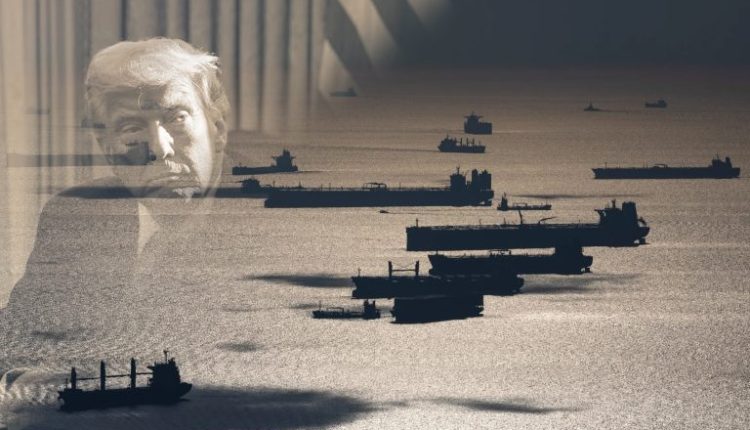SEA News – International Service – With the return of Donald Trump to power, the “maximum pressure” policy against the Islamic Republic of Iran has once again been placed on the White House’s agenda. In his first executive order, the new President of the United States has imposed additional sanctions on vital sectors of Iran’s economy, especially the maritime transport industry. These measures, designed to limit the country’s foreign exchange resources, will have wide-ranging consequences for Iran’s maritime trade and regional relations.
According to the provisions of this order, the U.S. Treasury Department is tasked with enforcing stricter measures against Iranian shipping companies, maritime transport lines, and suppliers of ship fuel. Some of the most important aspects of this order include increased restrictions on the export of oil and petrochemical products, secondary sanctions against companies cooperating with Iran’s maritime fleet, and pressure on insurance companies to refrain from providing services to Iranian ships.
The implementation of these policies will create additional challenges for Iranian ships’ access to international ports. Previous sanctions have shown that many ports in Asia, Europe, and even some regional countries have refused to accept Iranian vessels under pressure from Washington. It is now expected that these restrictions will intensify, especially in key strategic ports such as Fujairah, Jebel Ali, and Singapore, which play a key role in supplying fuel and providing technical services to ships.
Maritime Diplomacy as a Priority in Negotiations
Although Trump adopted a tough policy toward Iran during his first term in office, his track record shows that he has sometimes shown willingness to engage in direct negotiations with countries on the U.S. sanctions list. Therefore, the government could adopt a win-win approach and initiate negotiations centered on the maritime transport industry and facilitating trade exchanges. Such negotiations could take the form of diplomatic consultations, engagement with influential players, and even the use of international intermediaries.
A Strategy for Managing the Crisis
In the current situation, any delay in adopting strategic solutions will only deepen the crisis in the maritime industry and other sectors of the economy. Entering negotiations does not mean accepting all the demands of the opposite party, but rather an opportunity to manage the crisis and alleviate economic pressures. If the government can lead negotiations based on national interests, securing economic stability, and maintaining Iran’s position in the global economy and maritime transport industry, it is hoped that some of the existing pressures may be eased.

